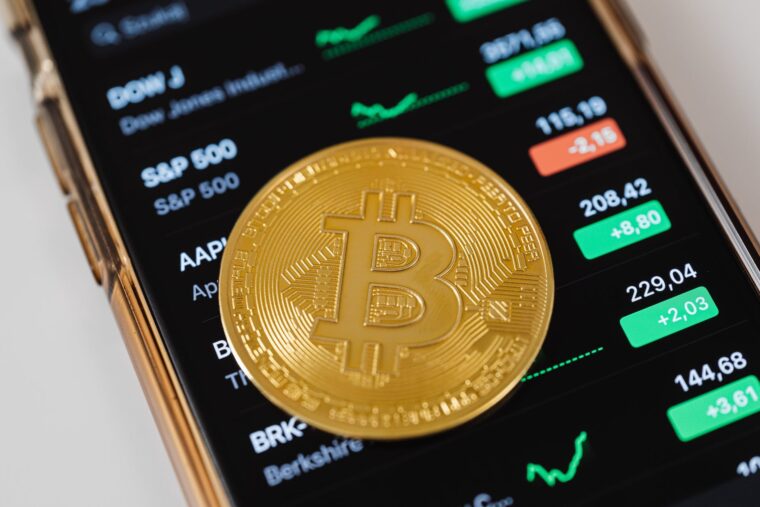Bitcoin was established in 2009 with the purpose of enabling fee-free or low-cost transactions across the globe with no involvement of financial institutions. It thus came with the peril of reliability and frequent price fluctuations. But that did not stop certain people and entrepreneurs from taking the risk of financing in this electronic currency. Many of them even stretched their base by buying and selling houses using it.
Today, bitcoin enjoys worldwide recognition and is increasingly accepted as a payment method in the real estate market. The real estate sector can now be bought and sold using digital currencies in several locations, including apartments and houses. However, this decision entails several risks which you should consider before deciding to use it as a mode of payment.
Major risks of buying and selling a home using bitcoin are listed below:

1. Decentralized Status
Bitcoins pose a major potential peril factor for the investors because it is decentralized – meaning that it has no tangible existence and is not supported by any centralized legal authority. Although governments worldwide have stepped in to assert their force in this market, all virtual currencies remained detached. It frees the players from being tied to any institution.
However, without the presence of a central authority to back the worth of virtual currency, investors may remain in the lurch. Moreover, there is the risk with the particulars of trading. Since neither of the above two concepts applies to bitcoin, legal uncertainty among the parties may arise.
2. Restricted Availability
Several investors in the crypto market understand how risky it is to put all your eggs in one basket. So, they resort to putting their money in the real estate sector as it is considered one of the safest investments to diversify your portfolio. However, when it comes to selling the property they purchased initially in the hope of making a profit, it finds a limited number of buyers.
The chief reason behind it being – although bitcoin transactions are on the rise, the number of people accepting it is still relatively small.

3. Lost Opportunity Cost
Investment is a great way of opting out of the unstable nature of the crypto market as it locks in your profits for an extended period. However, some investors decide to encash their coins as soon as it witnesses an increase in value because they do not want to take further risks. But this decision can lead the buyers to miss out on future appreciation of the cryptocurrency.
Although it is not certain that the investors will surely profit or incur a loss when dealing with digital currency, it is worth taking risks sometimes. So, if you decide to opt-out beforehand, you may miss out on future profits.
4. Complex Structure
Cryptocurrency works in an unregulated, decentralized environment – which can be a headache for many investors. People who have not yet tried their hands in this market do not know that trading is subject to capital gains tax. Besides, it has a very complicated tax structure, the knowledge you can gain from experienced CPA, to avoid a visit from the IRS dept.
Businesses should register and get licensure for carrying out activities using bitcoin. A large number of firms are taking advantage of virtual currencies as a mode of payment, but due to their complex and growing legal status, this area is less explored.
For example, companies only taking virtual currencies may not obtain licensure or register, but they may be asked to submit to particular considerations on the basis of their jurisdiction. Eventually, the responsibility is on the shoulders of business owners, who must make sure that they follow the right legal methods at both local and state levels.

5. Volatile Nature
Everyone dealing with cryptocurrency knows that it has a highly unstable nature. If its value has surged from what you bought it for yesterday, it might see a major slump tomorrow. You cannot expect its worth to remain stable even for a day. That is why if you have bought a property using bitcoin and you sell it at the wrong time, your profits could limit, and worse, you could suffer a loss.
Whoever deals with cryptocurrency has to prepare themselves for incurring losses certainly. Click here to pounce on lucrative profit opportunities in real-time when dealing with digital coins.
6. Fraud & Money Laundering
It is expected that one-day blockchain technology will become the standard with which we all will operate transactions. But until then, we must deal with the associated challenges that come with it. One of the major troubles for using bitcoin for real estate transactions is the belief that it provides fraudsters new ways of coming fraud, money laundering, and duping people.
Since cryptocurrency has a decentralized status, when an exchange is hacked, and customers’ holdings are looted, there is no reliable or standard practice for recovering the funds. Some investors may find themselves in the unfortunate position of becoming a victim of financial crime, and the worst thing is – they cannot do anything about it.
Due to this reason, many startups and developers are focusing all of their attention on creating safe ways of storing digital tokens and coins. There is the introduction of different types of storage – cold wallet, hot wallet, hardware wallet, paper wallet, coins, etc. Though the crypto exchange and developers are always introducing new security initiatives, several investors have not been able to eradicate the legal risks of owning digital currencies fully.
Choose the Right Home Insurance for Bitcoin Transactions
When buying or selling a home using bitcoin, it is important to choose the right home insurance company for your transaction. Home insurance companies that cover bitcoin transactions typically offer more comprehensive coverage than those that do not.
In addition to providing coverage for the value of your home and belongings, these policies may include additional protection against cyber incidents and losses due to cyber attacks. Some policies may also include coverage for potential losses related to market fluctuations in cryptocurrency markets or personal cyber liability if you suffer a breach while dealing with digital currency payments.

Conclusion
Crypto influences the way people buy and sell property, with more sellers accepting it and more buyers willing to cash in. There is no doubt that it will become a major disruptor in the real estate market due to its inherent security and transparency. However, its worth is uncertain, and if it were to become an everyday currency, it would need a set value. Lastly, using it as a payment method comes with a set of pros and cons, so make sure you do your research.
